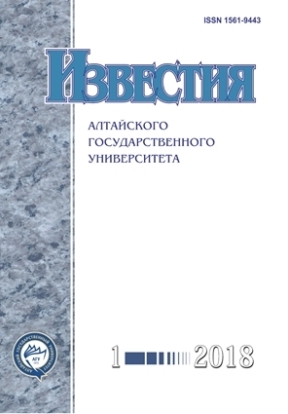Dynamics of Reflexive Collective Behavior in the Oligopoly Model with Leaders
Abstract
The problem of achieving Nash equilibrium in the oligopoly market with oligopolistic firms that acted on Stackelberg using reflexive repetitive games and models of collective behavior dynamics is considered. Oligopolists observe the product current price and use their own reflections on what actions should produce the best response from remaining firms. They repeat the game and clarify output using collective behavior models, making steps towards the current optimal release. The development of the dynamics can be directed by rules of the game with the step size. In case of reflexive games, step sizes can change over time, but firms at each time point must follow a unified policy of the same step size. The necessary and sufficient conditions for the convergence of dynamics in discrete time to the Nash equilibrium are obtained in the class of linear demand and cost functions of oligopolists. Dynamics converge for any initial output and price. Studies of the convergence dynamics when each firm may follow its own independent policy of step size choice are seemed to be prospective.
DOI 10.14258/izvasu(2018)1-11
Downloads
Metrics
References
Myerson R. Game Theory: Anaysis of Conflict. — London, 1991.
Sakovics J. Games of incomplete information without common knowledge priors // Theory and decision. — 2001. — № 50.
Novikov D., Chkhartishvili A. Reflexion and Control: Mathematical Models. — London, 2014.
Алгазин Г.И., Алгазина Д.Г., Пятковский О.И. Неравновесие по Штакельбергу и динамика коллективного поведения // Изв. Алт. гос. ун-та. — 2017. — № 1 (93). DOI: 10.14258/isvasu(2017)1-11.
Опойцев В.И. Равновесие и устойчивость в моделях коллективного поведения. — М., 1977.
Васин А.А., Васина П.А., Рулева П.Ю. Об организации рынков однородных товаров // Известия РАН. Теория и системы управления. — 2007. — № 1.
Algazin G.I., Algazina D.G. Collective Behavior in the Stackelberg Model under Incomplete Information // Automation and Remote Control. — 2017. — Vol. 78, № 9. DOI: 10.1134/S0005117917090077
Алгазин Г.И., Алгазина Д.Г. Информационное равновесие в модели динамики коллективного поведения на конкурентном рынке // Управление большими системами. — 2016. — № 64.
Geras’kin M.I., Chkhartishvili A.G. Game-theoretic models of an oligopoly market with nonlinear agent cost functions // Automation and Remote Control. — 2017. — Vol. 78, № 9. DOI: 10.1134/S0005117917090089.
Корепанов В.О., Новиков Д.А. Метод рефлексивных разбиений в моделях группового поведения и управления // Проблемы управления. — 2011. — № 1.
Айзенберг Н.И., Зоркальцев В.И., Мокрый И.В. Исследование нестационарных олигопольных рынков // Сибирский журнал индустриальной математики. — 2017. — Т. 20, № 1. DOI: 10.17377/SIBJIM.2017.20.102.
Дюсуше О.М. Статическое равновесие Курно — Нэша и рефлексивные игры олигополии: случай линейных функций спроса и издержек // Экономический журнал ВШЭ. — 2006. — № 1.
Copyright (c) 2018 Г.И. Алгазин, Д.Г. Алгазина

This work is licensed under a Creative Commons Attribution 4.0 International License.
Izvestiya of Altai State University is a golden publisher, as we allow self-archiving, but most importantly we are fully transparent about your rights.
Authors may present and discuss their findings ahead of publication: at biological or scientific conferences, on preprint servers, in public databases, and in blogs, wikis, tweets, and other informal communication channels.
Izvestiya of Altai State University allows authors to deposit manuscripts (currently under review or those for intended submission to Izvestiya of Altai State University) in non-commercial, pre-print servers such as ArXiv.
Authors who publish with this journal agree to the following terms:
- Authors retain copyright and grant the journal right of first publication with the work simultaneously licensed under a Creative Commons Attribution License (CC BY 4.0) that allows others to share the work with an acknowledgement of the work's authorship and initial publication in this journal.
- Authors are able to enter into separate, additional contractual arrangements for the non-exclusive distribution of the journal's published version of the work (e.g., post it to an institutional repository or publish it in a book), with an acknowledgement of its initial publication in this journal.
- Authors are permitted and encouraged to post their work online (e.g., in institutional repositories or on their website) prior to and during the submission process, as it can lead to productive exchanges, as well as earlier and greater citation of published work (See The Effect of Open Access).








